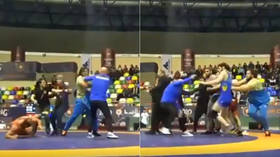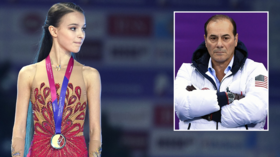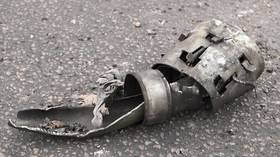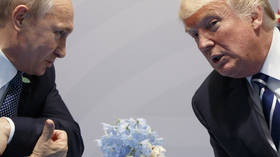Canadian canoeing champion cleared of doping charges after proving SEX was behind failed test
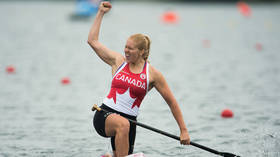
Canadian 11-time world champion canoeist Laurence Vincent Lapointe has been cleared of doping charges after it was determined that a banned substance entered her body through sex with her ex-boyfriend.
The 27-year-old athlete, who failed a drug test on the eve of the International Canoe Federation (ICF) Canoe Sprint World Championships last July, faced a four-year ban and the prospect of missing this summer’s Olympics in Japan if found guilty.
However, the Canadian champion managed to avoid the harsh punishment after persuading a tribunal that traces of steroid-like substance ligandrol detected in her system were a result of bodily fluid contamination from her ex-boyfriend.
"It's pretty incredible," Vincent Lapointe's lawyer Adam Klevinas said at a news conference. "It took months to get results, and then at the end, we got the idea to analyze the hair of her ex and to test a product he finally admitted to taking."
Début de la conférence de presse Laurence Vincent Lapointe. Tout sourire étant blanchis. Très heureuse de la décision de la Fédération internationale. pic.twitter.com/QnoJYwoQ2p
— André Beauchesne (@ABeauchesneRDS) January 27, 2020
The ICF, which investigated the case, accepted the evidence presented by the renowned canoeist, allowing her to return to action with no sanctions imposed.
"After taking into consideration scientific expert evidence provided by Ms Vincent Lapointe's legal team, and also the minuscule traces of ligandrol found in the athlete's sample, the ICF has accepted that Ms Vincent Lapointe did not knowingly take the illegal substance," the ICF said.
Also on rt.com 'Saddest moment of my life': Doubles world no.1 blames contaminated meat for failed doping test as he misses Australian Open"The ICF has accepted Ms Vincent Lapointe's evidence, which supports that she was the victim of third-party contamination, and has cleared her to return to training and competition immediately."
The verdict, however, can be challenged by the World Anti-Doping Agency (WADA) in the Court of Arbitration for Sport (CAS) if it disagrees with the ICF ruling.



